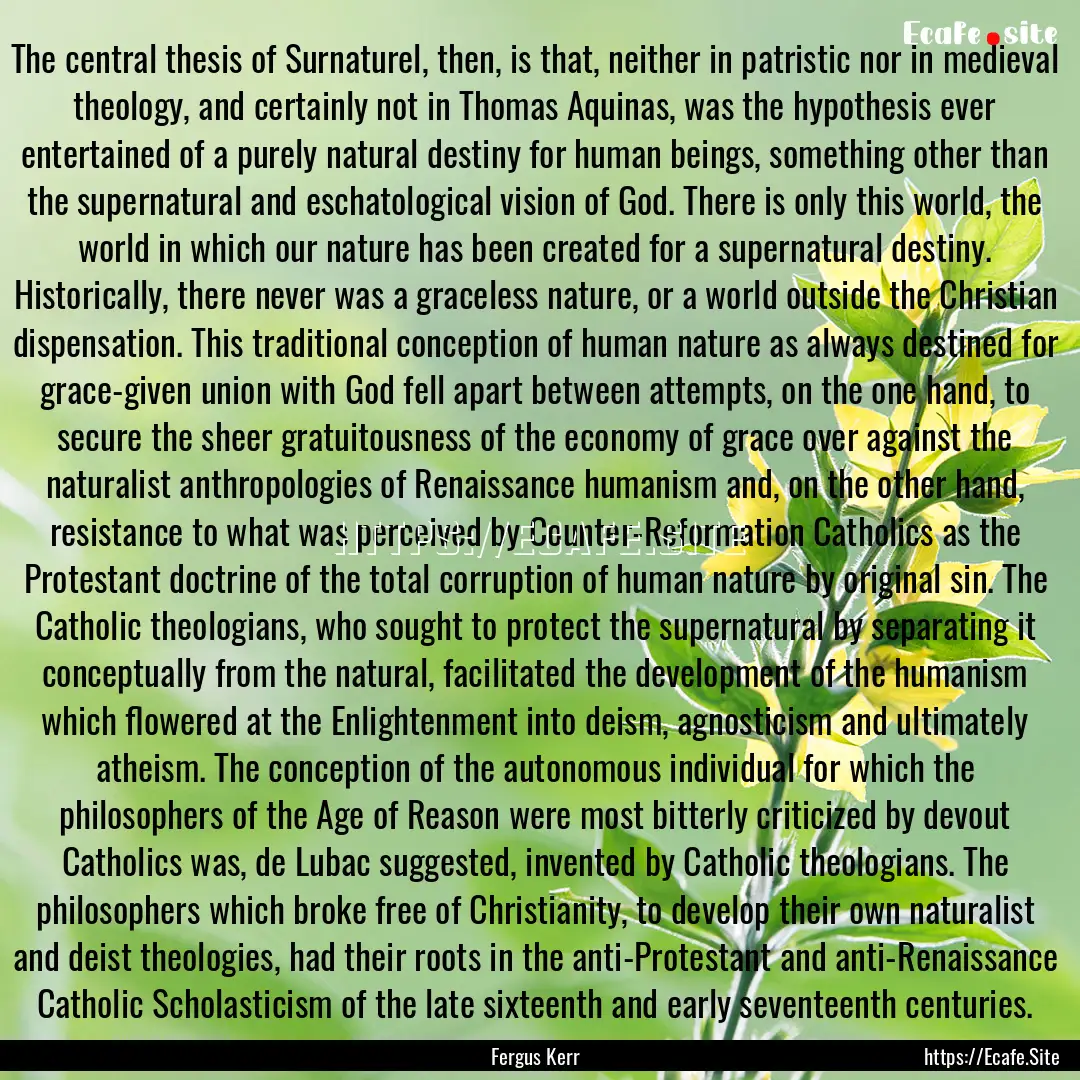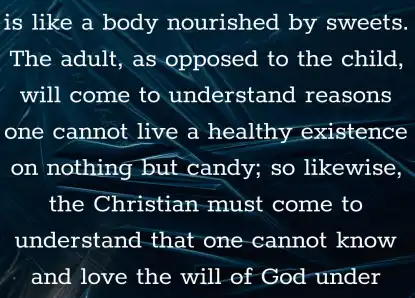
Report, if you have a problem with this page“ The central thesis of Surnaturel, then, is that, neither in patristic nor in medieval theology, and certainly not in Thomas Aquinas, was the hypothesis ever entertained of a purely natural destiny for human beings, something other than the supernatural and eschatological vision of God. There is only this world, the world in which our nature has been created for a supernatural destiny. Historically, there never was a graceless nature, or a world outside the Christian dispensation. This traditional conception of human nature as always destined for grace-given union with God fell apart between attempts, on the one hand, to secure the sheer gratuitousness of the economy of grace over against the naturalist anthropologies of Renaissance humanism and, on the other hand, resistance to what was perceived by Counter-Reformation Catholics as the Protestant doctrine of the total corruption of human nature by original sin. The Catholic theologians, who sought to protect the supernatural by separating it conceptually from the natural, facilitated the development of the humanism which flowered at the Enlightenment into deism, agnosticism and ultimately atheism. The conception of the autonomous individual for which the philosophers of the Age of Reason were most bitterly criticized by devout Catholics was, de Lubac suggested, invented by Catholic theologians. The philosophers which broke free of Christianity, to develop their own naturalist and deist theologies, had their roots in the anti-Protestant and anti-Renaissance Catholic Scholasticism of the late sixteenth and early seventeenth centuries. ”

Fergus Kerr
From : Twentieth-Century Catholic Theologians: From Neoscholasticism to Nuptial Mysticism



